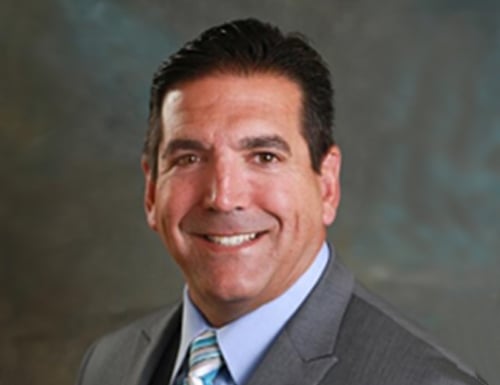2 min read
Colorado’s End of Life Law: Death With Dignity
How the state of Colorado treats terminal illness with the new end-of-life law is about to change significantly which...
Nearly everyone has an estate or property like stocks, a motor vehicle, life insurance, bank accounts, or even pets they wish to pass on to their family. Estate planning involves communicating your wishes to your loved ones so they know how you would like your property and assets handled.
It is easy to put off creating an estate plan. However, a well-thought-out plan benefits you and your family should anything happen to you. When people think about estate planning, they think about the financial side. Yet a robust plan is much more than just distributing your real estate assets, bank accounts, and possessions. Estate planning also involves health care decisions, guardianship of minors, and living wills. Whether you are new to estate planning or have an existing plan you want to update, a seasoned estate planning attorney can build a detailed plan for you and your family.

At Whitcomb Selinsky, PC, we are committed to helping you protect yourselves and your family through proactive estate planning. Our experienced national estate planning attorneys can evaluate your needs, provide legal advice, and walk you through the tools available. We review your legal documents, explain how estate law impacts your assets, and assist with creating a sound plan. Additionally, we will discuss your trust & estate process with your financial advisor.
We will review any financial or retirement accounts, such as life insurance policies, accidental life insurance benefits, bank accounts, pensions, and disability benefits to ensure each account is assigned a beneficiary designation. In addition, we are available to help you adjust your plan as your goals and circumstances change. Our priority is to give you peace of mind.

You can benefit from hiring an estate planning attorney for several reasons. First and foremost, an estate planning attorney has the expertise and knowledge to navigate the complex legal landscape associated with estate planning. They will ensure that your estate plan is properly structured and compliant with the relevant laws and regulations.
Additionally, an estate planning attorney can help you customize your estate plan to meet your specific needs and goals. They will take into consideration factors such as your assets, family situation, and personal wishes, and tailor the plan accordingly.
Furthermore, an estate planning attorney can provide valuable guidance and advice on various estate planning tools and strategies, such as wills, trusts, and powers of attorney. They will help you choose the most appropriate options for protecting your assets, minimizing taxes, and ensuring a smooth transfer of wealth to your beneficiaries.
Another important role of an estate planning attorney is to assist with the probate process. Should your estate need to go through probate, an attorney can help streamline the process and handle any potential challenges or disputes that may arise.
Ultimately, hiring an estate planning attorney offers peace of mind. By working with a professional, you can have confidence that your wishes will be properly documented and legally enforceable, and that your loved ones will be taken care of according to your intentions.

While both a will and estate planning pertain to the distribution of assets after death, it's important to understand the fundamental distinction between the two. A will, as many are aware, is a legal document that outlines a person's wishes regarding the distribution of their assets upon their death. It serves as a roadmap for how the person's property, possessions, and financial accounts should be distributed among their beneficiaries. Moreover, a will can also appoint a guardian for minor children and an executor to handle the administration of the estate.
On the other hand, estate planning goes beyond the scope of a will and encompasses a much broader concept. It involves a comprehensive approach to managing assets both during one's lifetime and beyond. The primary goal of estate planning is to protect and preserve wealth, while also reducing tax burdens, planning for potential incapacity, and ensuring the orderly transfer of assets upon death.
Estate planning is a dynamic process that takes into account a variety of legal strategies, tools, and considerations. It involves careful deliberation and consultation with professionals such as estate planning attorneys who specialize in this field. These attorneys have the expertise to guide individuals through the intricate landscape of estate planning.
One of the key aspects of estate planning is the utilization of legal tools such as wills, trusts, powers of attorney, and advance healthcare directives. Wills, as previously mentioned, play an integral role in estate planning. They are essential for ensuring that a person's final wishes are respected when it comes to asset distribution. However, estate planning can involve much more than just a will.
Trusts are another crucial component of estate planning. They provide a flexible and effective means for managing and distributing assets. Trusts can be revocable or irrevocable, depending on the individual's goals and circumstances. They offer benefits such as privacy, asset protection, and avoidance of probate.

Finding a good estate planning attorney in your local area requires careful consideration and research. Here are some steps you can take to identify reliable and competent professionals:
1. Seek Recommendations: Ask friends, family, or colleagues if they have worked with an estate planning attorney and inquire about their experiences. Personal referrals are often valuable in finding trustworthy professionals.
2. Consult Professional Networks: Reach out to other attorneys or professionals in related fields, such as accountants or financial advisors, who may have insights into reputable estate planning attorneys in your area. They can share their recommendations or point you in the right direction.
3. Online Research: Utilize online resources to find estate planning attorneys in your local area. Start by visiting reputable legal directories or websites that provide listings of attorneys, along with client reviews and ratings. Pay attention to the attorney's expertise, experience, and any special certifications in estate planning.
4. Check State and Local Bar Associations: Consult your state or local bar association's website, as they often have directories or referral services that can help you find qualified estate planning attorneys. These associations may also provide information on an attorney's disciplinary history, ensuring you work with a reputable professional.
5. Read Online Reviews: Look for testimonials, reviews, or feedback about prospective estate planning attorneys. Online platforms such as Google Reviews or specialized legal forums can provide valuable insights into an attorney's reputation, communication style, and client satisfaction.
6. Conduct Initial Consultations: Once you have a shortlist of potential estate planning attorneys, schedule initial consultations to discuss your needs and evaluate their level of understanding, professionalism, and responsiveness. Use this opportunity to ask questions about their experience, approach to estate planning, and fees.
By following these steps and considering multiple sources of information, you can find a good estate planning attorney in your local area who meets your specific needs and safeguards your interests.

If your circumstances change, it is important to update your estate plan to ensure that it reflects your current wishes and objectives. Here are some steps you can take to update your estate plan:
1. Review your existing estate plan: Start by reviewing your current estate plan, including your will, trusts, and other documents. Identify any provisions or instructions that may no longer align with your current situation.
2. Identify the changes in your circumstances: Determine the specific changes that have occurred in your life. This may include events such as marriage, divorce, birth or adoption of a child, death of a beneficiary, acquisition or sale of assets, or a change in your financial situation.
3. Consult with an estate planning attorney: It is recommended to seek the guidance of an experienced estate planning attorney. They can help you understand the legal implications of your changed circumstances and provide advice on updating your estate plan accordingly.
4. Make necessary modifications: Working with your attorney, make the necessary modifications to your estate plan. This may involve updating beneficiary designations, adding or removing beneficiaries, updating asset distribution instructions, and making changes to powers of attorney or healthcare directives.
5. Update legal documents: Once the modifications have been made, it is crucial to update your legal documents accordingly. This may include executing new versions of your will, trusts, powers of attorney, and any other relevant documents.
6. Communicate changes with relevant parties: Inform the relevant parties about the updates to your estate plan. This may include family members, beneficiaries, your attorney, and any other individuals involved in the administration of your estate.
7. Regularly review and revise: It is important to periodically review and update your estate plan, even if your circumstances have not changed. Life events, changes in laws, or shifts in your financial situation may necessitate further revisions to ensure your estate plan remains current and effective.
Remember, updating your estate plan is crucial to ensure that your wishes are properly reflected and that your loved ones are provided for in the event of your incapacity or passing. Seeking professional legal advice is highly recommended to ensure that your estate plan is comprehensive and legally sound.

Executorship of the Estate
Guardianships for Minor Children, Elderly Parents, and Adults with Disabilities
Living Wills
Memorandum for Distribution of Tangible Personal Property
Power of Attorney
State or Federal Benefits such as Pensions and Social Security
Trusts
Wills
Wills and trusts are essential and commonly used in the estate planning process. However, they are not the same. A will affects the distribution of assets after your passing along with other decisions, including guardianship of minors. Additionally, a will can instruct the executor to create a trust. This typically occurs so assets are held until the benefactor reaches a specific age. Once finalized and signed, it is filed with your jurisdiction’s probate court.
A trust also affects the distribution of your assets but can be used while you are alive. A trustee manages the trust administration. They are fiduciary required to follow the terms outlined in the trust and make financial decisions in the beneficiary’s or beneficiaries’ best interest. You can create a living trust, executed during your lifetime, or a testamentary trust, created post humorously. Additionally, there are charitable and special needs trusts.
The role of a guardian is the day-to-day caring for a minor child, elderly or vulnerable parents/adults, or adult with a disability/disabilities. They decide on living situations, nursing home placement, and healthcare decisions. Guardianship decisions occur if you become incapacitated and can no longer fully care for them.
The conservator manages the finances for the minor child until they come of age, the elderly or vulnerable parents/adults, or an adult with a disability/disabilities. They pay day-to-day or medical bills, manage financial accounts, pay debts, and handle government benefits.
The same person can be a guardian and conservator. However, often they are two different people.
If you become incapacitated or lose your mental functions, your power of attorney/durable power of attorney makes financial decisions on your behalf in either temporary or permanent situations. Mental incapacity includes conditions such as senility, Alzheimer’s, or schizophrenia. A power of attorney can have complete authority, or you can limit their decision-making abilities.
Your living will tells family members what type of medical care you want or do not want to receive if you become incapacitated and can not speak for yourself. This includes the use of feeding tubes, pain management, or procedures.
Advance directives and living wills are similar, but advance directives include more health care directives for the medical staff and your family. This includes do not resuscitate orders (DNR), organ donation, and/or medical power of attorney. Some states use the terms living will and advance directives interchangeably.
A medical power of attorney (POA) specifies who can make medical decisions on your behalf, including end-of-life. Your medical POA can handle non-end-of-life decisions, such as a complication during surgery. They can also handle your end-of-life decisions.
Regardless if you have a will or not, your estate will go into probate. Probate is the general administration of your will. The executor will complete the probate process by filing the will with the probate court, collecting the assets, paying any debt or liabilities, and distributing the assets per the will’s directives.
If there is no will, the estate becomes an intestate estate, and the assets will be distributed according to state laws.
An estate planning attorney or probate attorney helps individuals who need assistance with probate or the administration of an estate. They also help individuals who wish to assist estate administrators, executors, or beneficiaries who want to transfer or sell estate properties.
The estate executor manages your estate administration. They will distribute your assets per your will. After they have paid administrative expenses and settled all debts, any leftover assets will be distributed with your state’s intestacy laws. Your will can also have a revocable trust created for any leftover assets. Those assets will transfer over to the trustee or trustees.
If you have not created a will or trust, your property will enter the probate process as an intestate estate. There, the courts decide on the beneficiaries of your estate. The beneficiaries include your spouse, child(ren), parents, and siblings. Your state has a beneficiaries hierarchy if there are no surviving parents or siblings.
Unfortunately, your trust or estate may owe taxes or taxes may need to be filed after your passing. These include federal estate taxes, state estate taxes, state inheritance taxes, federal gift taxes, generation-skipping transfer taxes, and/or income taxes. Not all taxes apply in all states or to all trusts or estates.
An estate attorney can assist you through estate tax minimization strategies and other techniques, including estate and gift planning.

Joe Whitcomb is the founder and president of Whitcomb Selinsky, PC. In addition, he manages the firm and heads up the Government Contracting and International Business Transactions practice areas.

Doug is a proven, seasoned trial attorney with over 32 years of litigation experience in State and Federal courts. He is well-versed at operating in dynamic atmospheres and is able to quickly adapt to the ever-changing demands of today’s legal environment. He has broad experience in developing, settling, mediating, and trying hundreds of cases in a wide array of practice areas in State and Federal Courts throughout the U.S.

For more than 20 years, William worked as an attorney in a private practice law firm concentrating on insurance coverage and defense, general practice, personal injury, litigation, business, zoning, environmental law, civil works issues, and municipal law.
Get Started in
 Discuss Your Claim
Discuss Your Claim  Explore Your Options
Explore Your Options  We Will Advocate For You
We Will Advocate For You


Apr 10, 2020 by RMDLG Staff
How the state of Colorado treats terminal illness with the new end-of-life law is about to change significantly which...
Nov 3, 2023 by Joe Whitcomb
In the case of In re Estate of Ramstetter, the Colorado Court of Appeals, Division III, was faced with a complex...
Colorado
2000 South Colorado Blvd.
Tower #1 Suite 9500
Denver, CO 80222
(303)-647-1045 (local)
(303)-534-1958 (local)
Virginia
910 Littlepage St. Suite A
Fredericksburg, VA 22401
(804)-773-4699 (local)
(804)-773-4699 (fax)
© 2024 · All Rights Reserved · Whitcomb, Selinsky, PC